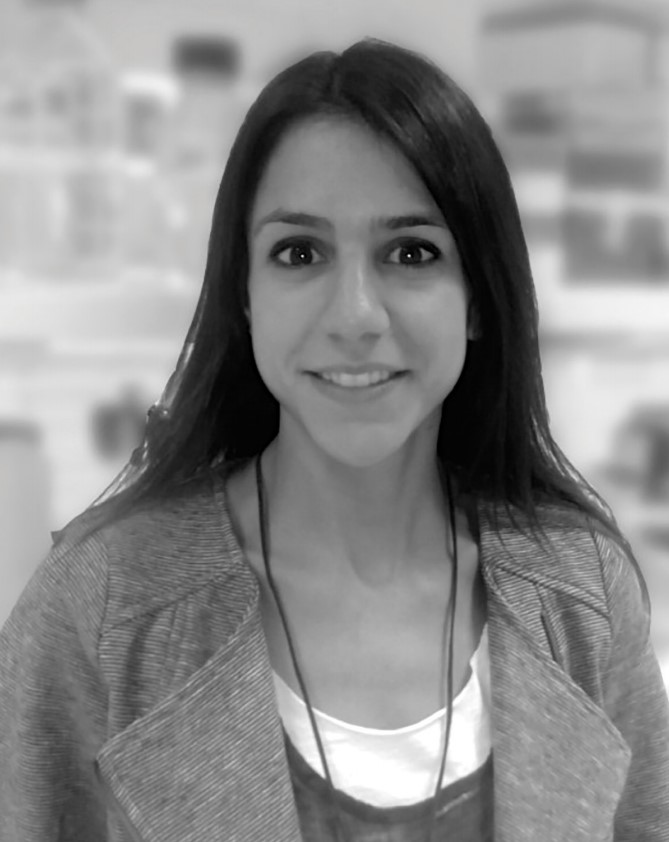When MCAA members bring their expertise to tackle COVID-19 - Meet the new Health Manager - MCAA Magazine News January 2021
MCAA member Laura Moro is addressing the COVID-19 pandemic by delivering information based on academic research through The Health Manager, a digital platform ensuring accurate and timely knowledge translation.
Laura, in her own words
I am originally from Salamanca, Spain. I obtained my BSc in Biotechnology there and then moved to Barcelona for a master’s in Biomedical Research. After that, I joined the Barcelona Institute for Global Health to perform a PhD project. My research focused on the immunopathology and diagnosis of malaria in pregnant women from Sub-Saharan Africa, and the interaction of malaria and HIV. During my PhD, I had a secondment in Germany and worked with a research institute in Mozambique.
After obtaining my PhD in Medicine from the University of Barcelona, I moved to Rome, to work as an experienced researcher (postdoc) within a Marie Skłodowska-Curie Actions (MSCA) Innovative Training Network (ITN). I have always been interested in applied research, in particular in medical diagnosis, so it was exciting to be involved in the Research and Development (R&D) of biosensors and bioassays for medical and environmental applications and to gain experience in the biotech industry.
Eager to contribute to real-world applications of scientific discoveries, I am currently involved in health innovation and health entrepreneurship activities. I am the co-founder of AiScope, a non-profit organisation using Artificial Intelligence to improve the diagnosis of malaria and other infectious diseases in lowresource settings, and co-founder of The Health Manager, a digital platform for COVID-19 knowledge translation for doctors and patients. I recently completed a master’s in Science Communication and Journalism, and I also work in scientific-medical communication.
Laura is building on her impressive experience in the field of infectious disease. As an MSCA ITN fellow in the framework of the SAMOSS consortium, she had the opportunity to transfer her research skills from academia to the biotech industry.
“I performed most of my work as Marie Curie fellow in a small biotech company in Rome but also had the opportunity to work in Germany and to attend training and meetings in other locations,” she says. “I worked in the design and development of novel biosensors and bioassays for medical diagnosis and environmental monitoring.”
She is quick to highlight the benefits of this experience. “Coming from the academic research world, it was a great opportunity to understand how the biotech industry works, how to apply the scientific knowledge for the development of commercial products, and how to build synergies between academia and industry.”
Her MSCA experience has been just as important. “Being an MSCA fellow was an incredible personal and professional experience. I felt part of a big multidisciplinary network of supportive and motivated scientists and I am still involved in Marie Curie Alumni Association.”
ADDRESSING THE COVID-19 CHALLENGES
With the spread of the COVID-19 pandemic, Laura felt the urgency to work on a solution to tackle this phenomenon.
“As a scientist with a background in infectious diseases, I wanted to contribute to tackling the challenges brought on by the pandemic. During the lockdown, I joined a few hackathons and online collaborative events searching for solutions to COVID-19-related problems,” she explains.

During one of these hackathons, Laura had the opportunity to mentor one of the winning teams presenting a project called The Health Manager, a digital platform for knowledge translation from scientific articles to patients and doctors. “I loved the project because it tries to fill a crucial gap between scientific research and clinical practice, so I decided to join the team – which just so happens to be an all-female team,” says Laura.
While COVID-19 is the reason for the launching of The Health Manager, the project will be used in the future for other health crises or chronic diseases. “The platform uses Artificial Intelligence to extract and summarise scientific evidence in an easily understandable and graphic format. In this way, doctors can keep up to date with COVID-19 research, while patients can find evidence-based answers to health questions,” Laura explains.
She is also proud of her contribution on various publications dealing with the COVID-19. “I have helped several teams of researchers to analyse and present epidemiological data regarding COVID-19 in scientific publications. I have also written a few articles for digital outlets about COVID-19 in pregnancy, the discovery of new antiviral drugs, and the impact of the pandemic on clinical trials,” she says.
‘I AM AMAZED AND PROUD’
Laura highlights the scientific community’s commitment, working hard to develop solutions to fight the pandemic. “I am amazed and proud of the unprecedented response of the scientific and medical communities to the pandemic. We know, however, that scientific discoveries and their clinical translation require time and resources, but we are living a race against the clock.”
As for the explosive dissemination of fake news, especially on social media, about COVID-19, Laura explains this is contributing to bad decisions at all levels. “A distrust of science is rising among some sectors of the population, and politicians in some cases are making decisions that are not supported by science. I am firmly convinced that scientists are key actors to find solutions against the challenges put by COVID-19 and other global threats such as the environmental crisis. We need to convey this message to the general public and those making the decisions,” she says.
A solution could reside in fostering science communication and scientific leadership. “We need more scientists in leadership and decision-making roles to be ready to face global crises such as the COVID-19 pandemic,” concludes Laura.
MCAA Editorial Team